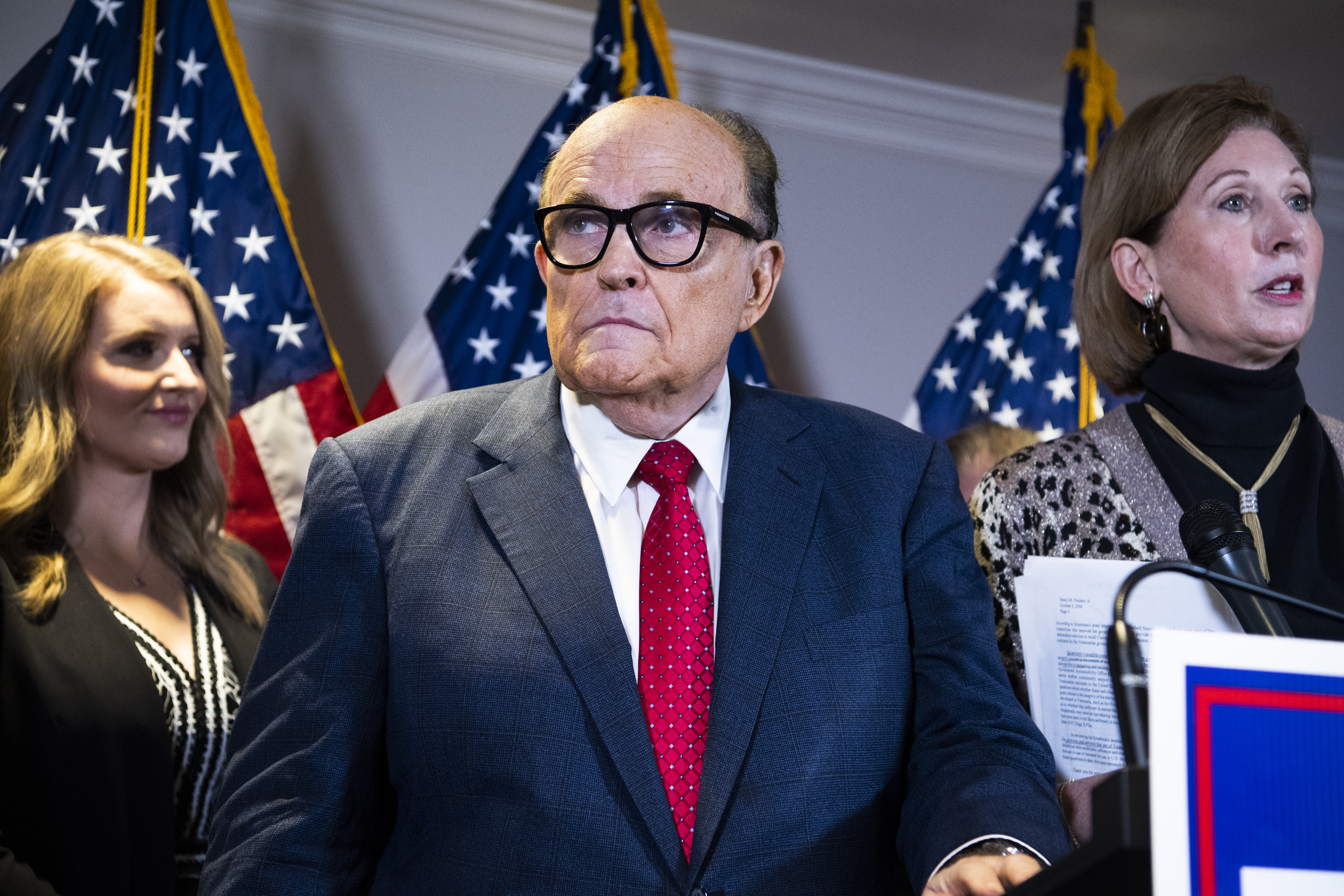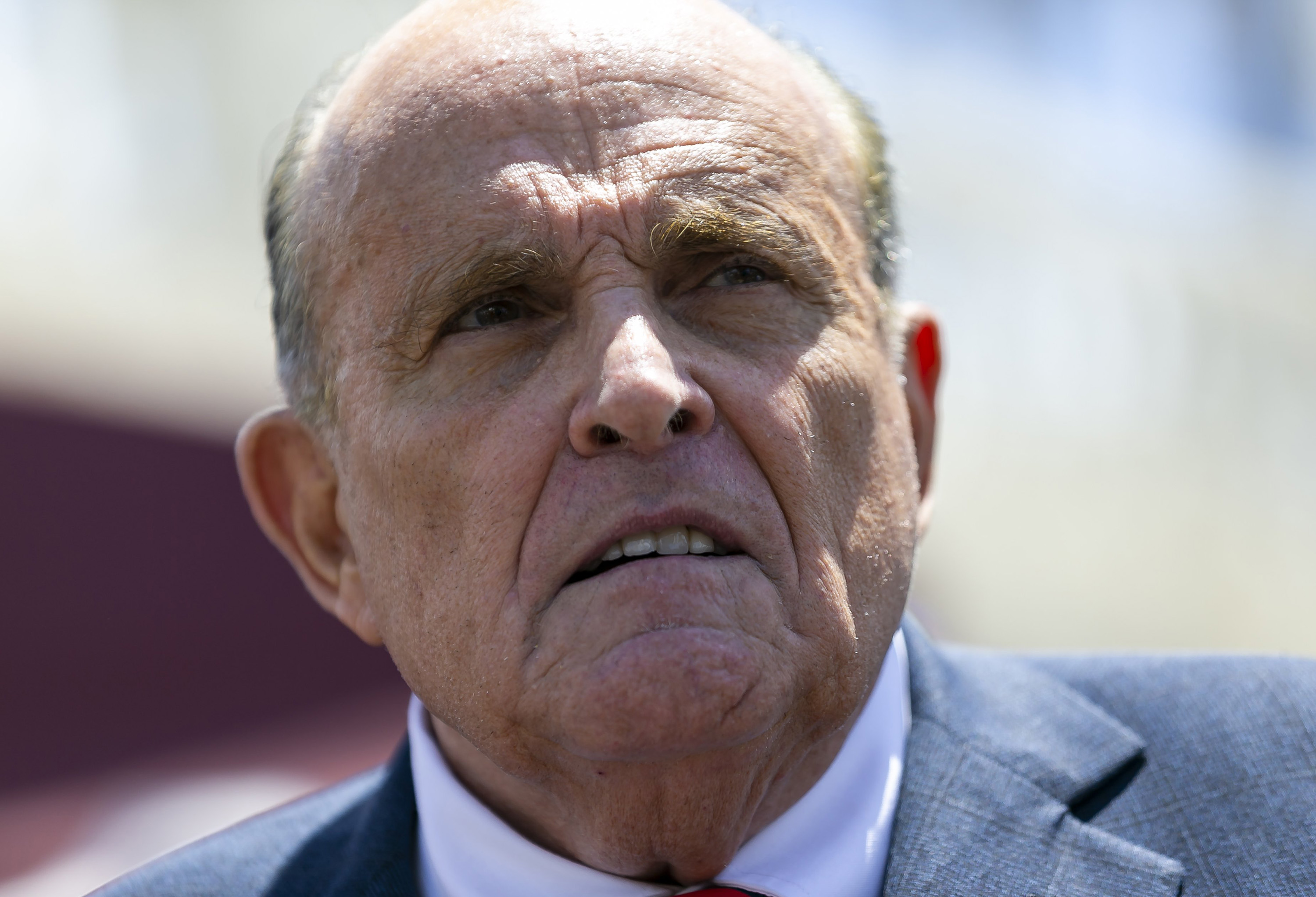
Former New York City Mayor Rudy Giuliani could be disbarred in Washington after a review panel on Friday condemned how he pursued the false claims that then-President Donald Trump made about his 2020 presidential election loss.
Giuliani “claimed massive election fraud but had no evidence,” wrote the three-member panel in a report that details the errors and unsupported claims the former mayor made in a Pennsylvania lawsuit seeking to overturn the Republican president's loss to Democrat Joe Biden.
Between Election Day and the Jan. 6, 2021, riot at the U.S. Capitol, Giuliani and other Trump lawyers repeatedly pressed claims of election fraud that were almost uniformly rejected by federal and state courts. He's the third lawyer who could lose his ability to practice law over what he did for Trump: John Eastman faces disbarment in California, and Lin Wood this week surrendered his license in Georgia.
“Mr. Giuliani’s effort to undermine the integrity of the 2020 presidential election has helped destabilize our democracy,” wrote the panel, Robert C. Bernius, Carolyn Haynesworth-Murrell and Jay A. Brozost.
We've got the news you need to know to start your day. Sign up for the First & 4Most morning newsletter — delivered to your inbox daily. >Sign up here.
“The misconduct here sadly transcends all his past accomplishments,” they wrote. “It was unparalleled in its destructive purpose and effect. He sought to disrupt a presidential election and persists in his refusal to acknowledge the wrong he has done.”
Giuliani has already had his New York law license suspended for false statements he made after the election. The Washington review panel's work will now go to the D.C. Court of Appeals for a final decision.
Ted Goodman, a political adviser to Giuliani, criticized the panel's work as an attempt to persecute Giuliani and “part of a larger effort to deny President Trump effective counsel.”
“I call on rank-and-file members of the DC Bar Association to speak out against this great injustice,” Goodman said in a statement.
Giuliani's post-election work has made him a key figure in several federal and state probes. He met with the special counsel appointed to investigate efforts to overturn the 2020 election and prosecutors in Fulton County, Georgia, also conducting an investigation.
The panel examined a case Giuliani argued on Nov. 17, 2020, ten days after The Associated Press and other news outlets called the election for Biden.
The Trump campaign complained that Philadelphia and six Democratic-controlled counties in Pennsylvania let voters make corrections to mail-in ballots that were otherwise going to be disqualified for a technicality, such as lacking a secrecy envelope or a signature. Some other counties did not follow suit.
Giuliani argued the case. While he had once served as a U.S. attorney in New York, the Pennsylvania argument was his first court appearance as an attorney since 1992, the year before he was elected New York mayor, according to federal records.
More: Rudy Giuliani
He spent much of the hearing baselessly alleging a national conspiracy to steal the election from Trump, something the former president continues to argue today.
U.S. District Judge Matthew Brann rejected Giuliani's arguments days later, noting the Trump campaign had wanted him to throw out millions of votes.
“One might expect that when seeking such a startling outcome, a plaintiff would come formidably armed with compelling legal arguments and factual proof of rampant corruption,” Brann wrote then. “That has not happened.”
The panel's review on Friday said Giuliani “did not offer any evidence that fraudulent mail-in votes were actually cast or counted," but instead made his own inferences.
“Mr. Giuliani’s argument that he did not have time fully to investigate his case before filing it is singularly unimpressive,” the panel wrote. "He sought to upend the presidential election but never had evidence to support that effort."
The panel said Giuliani had violated a rule that prohibits lawyers from “from engaging in conduct that is prejudicial to the administration of justice.”
“Clogging the courts with unnecessary and frivolous cases is such a violation," the panel said.




